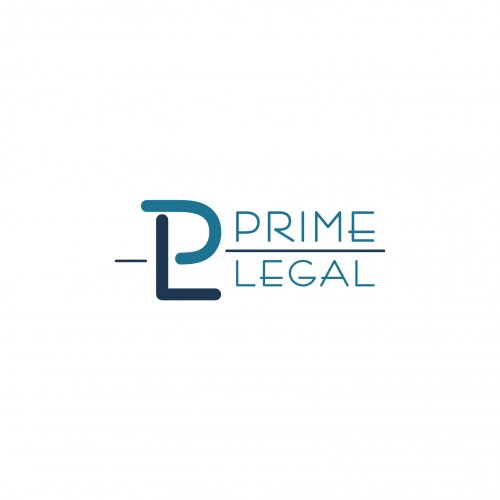Best Agriculture Lawyers in Tbilisi
Share your needs with us, get contacted by law firms.
Free. Takes 2 min.
List of the best lawyers in Tbilisi, Georgia
About Agriculture Law in Tbilisi, Georgia
Tbilisi, the capital city of Georgia, is known for its vibrant agricultural sector. Agriculture plays a vital role in the economy, with many farmers and businesses involved in the production of crops, livestock, and other agricultural products.
Why You May Need a Lawyer
While agriculture is a rewarding industry, there are situations where legal assistance may be necessary. Here are a few common scenarios where a lawyer might be needed:
- Disputes over land ownership or boundaries
- Negotiating contracts with buyers or suppliers
- Environmental compliance and regulatory issues
- Employment matters and labor laws
- Intellectual property protection for new plant varieties or inventions
Local Laws Overview
When it comes to agriculture in Tbilisi, it is essential to understand the key aspects of local laws. Some of the relevant laws and regulations include:
- The Law of Georgia on Agriculture and Rural Development
- The Law of Georgia on Land Ownership and Land Use
- Environmental Protection and Biodiversity Conservation laws
- Food safety and quality regulations
- Labour Code of Georgia
Frequently Asked Questions
Q: Can I start an agricultural business in Tbilisi, Georgia?
A: Yes, you can start an agricultural business in Tbilisi, Georgia. However, it is essential to comply with the necessary legal requirements, such as registering your business and obtaining the required licenses and permits.
Q: What permits or licenses do I need to operate a farm?
A: The specific permits and licenses you need may vary depending on the size and type of your farm. Generally, you will need licenses for land use, water usage, and possibly for operating certain types of agricultural machinery. It is advisable to consult with a lawyer to ensure you are in compliance with all applicable regulations.
Q: What are the regulations regarding the use of pesticides and fertilizers?
A: The use of pesticides and fertilizers is regulated in Tbilisi, Georgia. You must comply with the specific guidelines and restrictions set by the Ministry of Environmental Protection and Agriculture. It is crucial to use approved pesticides and fertilizers correctly to protect both your crops and the environment.
Q: What are my rights as an agricultural worker in Tbilisi, Georgia?
A: Agricultural workers in Tbilisi, Georgia have certain rights protected under the Labor Code. These include the right to a fair wage, safe working conditions, reasonable working hours, and social security benefits. If you believe your rights have been violated, it is recommended to seek legal advice.
Q: How can I resolve a land dispute related to agriculture?
A: Resolving a land dispute related to agriculture can typically involve negotiation, mediation, or, in some cases, legal action. It is advisable to seek legal assistance to navigate the complexities of land ownership and resolve the dispute in a fair and efficient manner.
Additional Resources
Here are some additional resources that can provide helpful information and support for legal advice related to agriculture in Tbilisi, Georgia:
- Ministry of Environmental Protection and Agriculture - www.mepa.gov.ge
- Georgian Farmers' Association - www.geofarm.ge
- Georgian Farmers' Cooperative - www.gfc.coop
Next Steps
If you require legal assistance in the field of agriculture in Tbilisi, Georgia, it is recommended to:
- Identify your specific legal issue and gather any relevant documentation.
- Research and choose a qualified lawyer with expertise in agricultural law.
- Contact the selected lawyer to schedule a consultation and discuss your case.
- During the consultation, provide all necessary information and ask any questions you may have.
- Follow the advice and guidance provided by your lawyer to resolve your legal matter effectively.
Lawzana helps you find the best lawyers and law firms in Tbilisi through a curated and pre-screened list of qualified legal professionals. Our platform offers rankings and detailed profiles of attorneys and law firms, allowing you to compare based on practice areas, including Agriculture, experience, and client feedback.
Each profile includes a description of the firm's areas of practice, client reviews, team members and partners, year of establishment, spoken languages, office locations, contact information, social media presence, and any published articles or resources. Most firms on our platform speak English and are experienced in both local and international legal matters.
Get a quote from top-rated law firms in Tbilisi, Georgia — quickly, securely, and without unnecessary hassle.
Disclaimer:
The information provided on this page is for general informational purposes only and does not constitute legal advice. While we strive to ensure the accuracy and relevance of the content, legal information may change over time, and interpretations of the law can vary. You should always consult with a qualified legal professional for advice specific to your situation.
We disclaim all liability for actions taken or not taken based on the content of this page. If you believe any information is incorrect or outdated, please contact us, and we will review and update it where appropriate.








